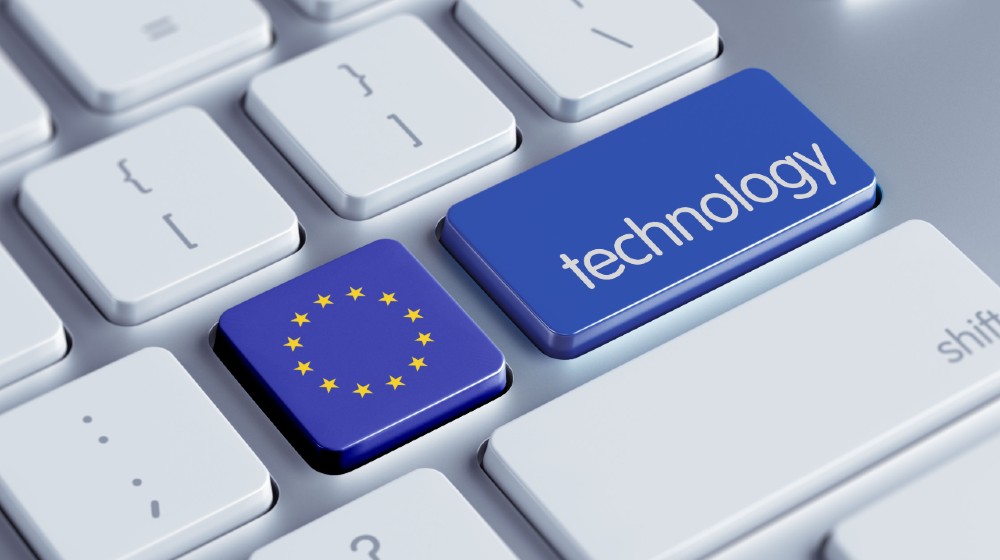Breaking News
EU Big Tech Regulation Calls for Tighter Rules, Fines

New EU big tech regulation wants tighter rules for big platforms, And if they don’t comply, the EU wants bigger fines. The European Union’s European Commission is proposing new laws to help stand up to big tech companies. These laws will also help smaller firms stand a chance against these giants in the European market. Called the Digital Services Act and the Digital Markets Act, these bills aim to open up tech giants and prevent them from dominating the market. The first focuses on removing illegal content (the Digital Services Act). Meanwhile, the Digital Markets Act aims to curb anti-competitive behavior.
RELATED: 48 States Sue Facebook, FTC Calls for Breakup
The Digital Services Act
The Digital Services Act provides consumers a means to report illegal content, goods, or services on online platforms. At the same time, the Act assigns platforms to perform due diligence. The Act also gives even larger platforms bigger obligations. With the DSA, authorities can supervise these platforms and enforce rules across the EU.
Want to see the full article
Click here to read the full article on thecapitalist.com
For consumers, this means added protection from tech companies’ control. Users will have better control over their content and will have the right to opt-out of recommendations. They will also have a better means of resolving disputes. For companies, it means that they will have to come up with more transparent terms and conditions for their platforms and for content moderation. The DSA also allows researchers to gather data from tech companies that were previously unavailable.
The Digital Markets Act
Meanwhile, the Digital Markets Act ensures a fairer business environment from digital gatekeepers. This allows innovators and startups opportunities to compete with the big and established companies without the need to comply with one-sided terms.
By opening up the market and prevent anti-competitive behavior, consumers will get more choices and better services. They will also get the right to switch to new platforms or services without fear of getting penalized. The EU clarified that these gatekeeper platforms will retain their ability to innovate and offer new services. However, the EU will not allow them to use their own platform to gain unfair business advantages.
Penalties
Both the DSA and DMA penalize offending companies should they fail to curb their behavior. Companies that violate the EU content policies can receive fines of up to 6% of global revenues. Repeat offenders will have their platforms temporarily banned. Antitrust fines of up to 10% of global revenues will be extended to include more violations.
More importantly, if the threat of fines or other penalties do not make these companies alter their behavior, the EU wants the power to break them up into smaller units. While the bills did not mention any company, the language and content make it seem the target of several US big tech companies. These include Google, Amazon, Apple, and Facebook.
Company Concerns
The companies in question warned against handicapping companies’ abilities to innovate. At the same time, it also warned against forcing companies to remove legal content out of fear of violating obligations. However, Facebook said on Tuesday it welcomed the harmonized rules from the EU. They agreed that the rules are “on the right track to help preserve what is good about the internet,” the social media giant said.
Karan Bhatia, Google VP for government affairs and public policy, voiced concerns that the bills “appear to specifically target a handful of companies and make it harder to develop new products to support small businesses in Europe.” An Amazon spokesman referred to a blog post where the company stated that the EU ensures that “the same rules apply to all companies.”
‘Fairly Compete Online and Offline’
Margrethe Vestager, the EU commissioner leading the charge on tech issues, said in a statement that the new EU big tech regulation serves one purpose. This is “to make sure that we, as users, have access to a wide choice of safe products and services online. And that businesses operating in Europe can freely and fairly compete online just as they do offline.” The United Kingdom also made its own moves aimed at curbing tech companies. The UK drafted a law that penalizes tech companies that fail to remove or limit the spread of illegal content up to 10% of their annual sales under rules proposed on Tuesday.
Thomas Vinje, Clifford Chance's partner, said that Europe is once again taking the charge. “Europe is again out front in the world and taking fairly dramatic action on the tech regulation front far beyond what any other country or region … is contemplating or pursuing,” he said.
View the Bloomberg Quicktake Now report on the new EU Digital Services Act and Digital Markets Act:
Do you agree that EU big tech regulation is required for big tech companies? Will these rules ensure that players maintain a level field? Also, do you expect the US to follow suit? Let us know what you think about the proposed EU rules on large tech companies.










